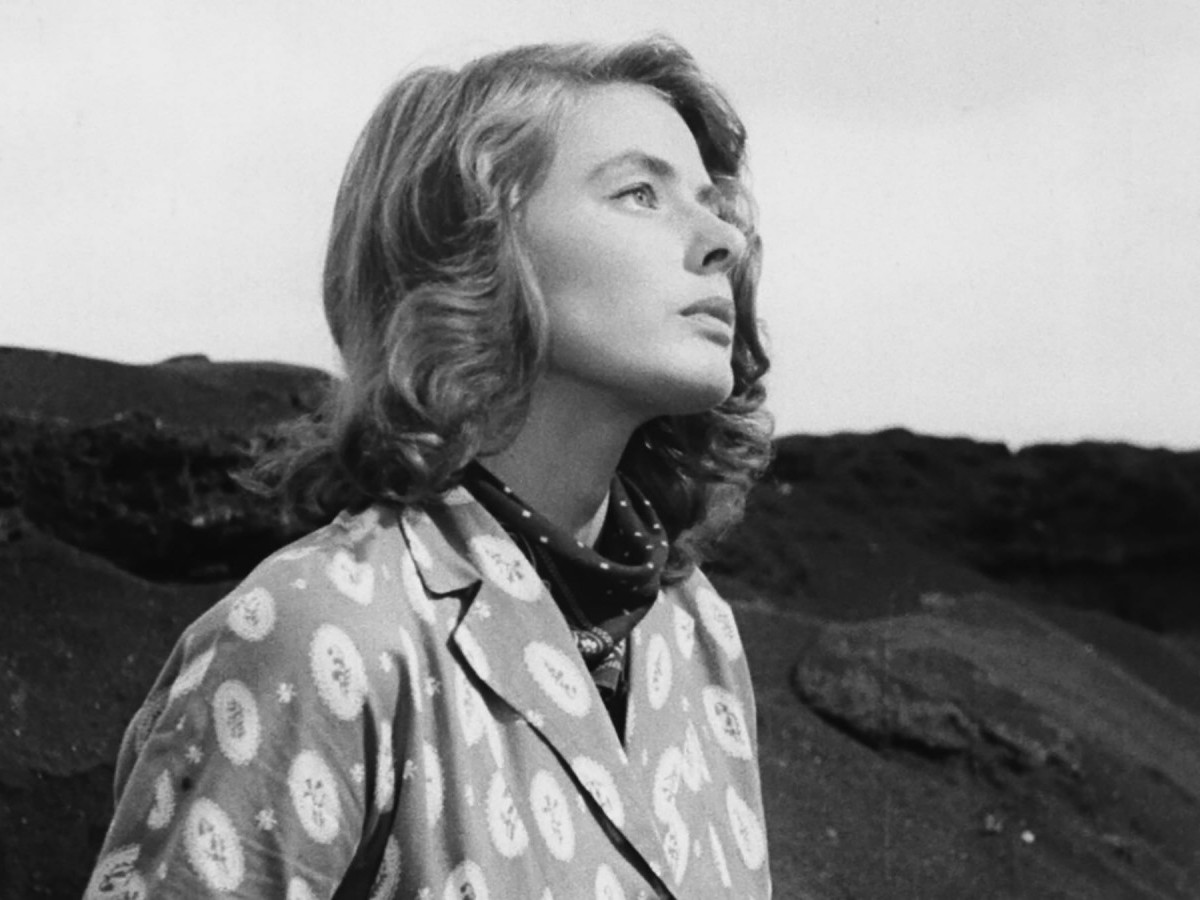
After the end of World War II Karin, a young displaced woman from Lithuania, marries Italian fisherman Antonio to get away from her internment camp. But the life on Antonio’s island, Stromboli, threatened by its volcano, is a tough one and Karin cannot get used to it.
EN
I gave to those who were asking nothing of me. I let myself be found by those who were not looking for me.
Isaiah 65:1, opening epigraph of the film1
“Dear Mr. Rossellini,
I saw your films Open City and Paisan, and enjoyed them very much. If you need a Swedish actress who speaks English very well, who has not forgotten her German, who is not very understandable in French, and who in Italian knows only ‘ti amo’, I am ready to come and make a film with you.”
Ingrid Bergman2
“If cinema were merely the art of probing the soul’s interior, I would be ready to give all of Stromboli for the Hitchcock shot [in Under Capricorn] in which Ingrid Bergman’s face, sunk against the edge of her bed, heavy-lipped, eyelids half-closed, reflects, in the space of an instant, such a wealth of diverse sentiments (fear and self-mastery, candor and calculation, rage and resignation) that the most concise writer could not express it in several pages. But Rossellini’s design is different, and it would be unfair of us to condemn him for denying us what others put so much science into revealing. In his work, each thing is in the present, is an appearance, a palpable form, and admits nothing beyond the divine hand that presided over its creation.”
Éric Rohmer3
- 1The English version of the film cites St. Paul’s later quotation of this passage (Rom. 10:20): “I was found of them that sought me not; I was made manifest unto them that asked not after me.” Rossellini remarked about this in 1956: “It was not difficult to discern my intentions – I shall even say my prayer – if one took the trouble to read the Bible verse placed on the screen after Stromboli’s titles.”
- 2Letter from Ingrid Bergman that reached Rossellini on 8 May 1948, cited in Peter Brunette, Roberto Rossellini (Berkeley: University of California Press, 1996), 109. Stromboli is their first film together.
- 3Éric Rohmer, “Roberto Rossellini: Stromboli,” In Éric Rohmer, Jean Narboni (ed.) & Carol Volk (transl.), The Taste for Beauty (Cambridge: Cambridge University Press, 1989), 127. Originally published in Gazette du cinéma 5 (1950).

